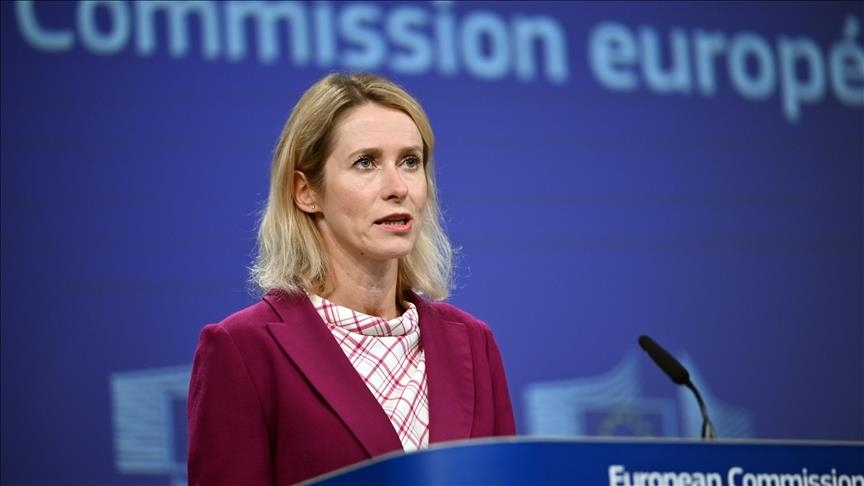EU unveils roadmap to boost defense readiness, eyes anti-drone system by 2027
Bloc's foreign policy chief says Russia poses no immediate threat but warns Europe must prepare for future risks, urging joint procurement, cooperation with Ukraine

GENEVA
The EU on Thursday unveiled a new roadmap aimed at strengthening the bloc's defense readiness, setting clear targets for member states to close capability gaps and prepare for potential future threats.
"This roadmap for defense readiness is a plan to keep peace over the next few years, there must be a major buildup of European defense capabilities," EU foreign policy chief Kaja Kallas told reporters while presenting the plan.
She emphasized that while "Russia has no capacity to launch an attack on European Union today, it could prepare itself in the years to come," adding that "danger will not disappear, even if the war in Ukraine will end."
Kallas said EU member states have identified nine key capability areas "in line with the NATO targets." The roadmap outlines "clear goals, timelines and indicators for work," she noted, highlighting that "the European Defense Agency will be instrumental in helping in this (as) it connects member states, aggregates demand, provides advice and links member states to defense companies."
"Our aim is that by 2030 all the current shortfalls are filled," she added, stressing that "member states are in the driving seat" and will decide "what to procure or develop, when and from whom to procure."
Under the plan, EU countries will work together to address "the most demanding capability shortfalls."
"This is why we propose that member states work together in coalitions where the member states cannot work alone," Kallas said.
Regarding the work on the first coalition, she said the work has "already started this week, the first meeting of the drones coalition took place with the Netherlands and Latvia in the lead."
"Drones are already redefining warfare. Having drone defenses is no longer optional for anyone," she stressed.
The foreign policy chief announced a new anti-drone system to be "fully operational by the end of 2027," which will be developed "in close cooperation with NATO." She warned that "every country is at risk," calling on "every member state" to invest in counter-drone systems and "capabilities to hit ground targets."
"That is why we consider that this is a flagship project," she said, adding that "Eastern Europe bears the brunt of the threat, and this needs particular attention."
According to Kallas, the Eastern Plank Watch initiative will bring together all the capabilities needed to defend this part of Europe, counter-drone systems, but also ground defense, air defenses, maritime and border management," with the goal to have it "ready by 2028."
Joint procurement, however, remains a challenge. "One hurdle that we must overcome is joint procurement, which is still far too low. So we are upping up the ambition to 40% of the defense spending by 2027. Economies at scale can help our industries to ramp up production and also lower costs for countries, the taxpayers will thank us for this."
Kallas also underscored Ukraine's key role in Europe's security. "Ukraine is still Europe's first line of defense. That is why security guarantees for Ukraine are also part of the roadmap. The strongest security guarantee is a strong Ukrainian defense industry and strong Ukrainian army," she said.
She said the EU aims to establish "a drone alliance with Ukraine by early next year," citing Kyiv's technological leadership. "Ukraine's drone defenses are world class."
"We have to use their experience from the battleground, but also their innovation to build on it together," Kallas said, adding that the roadmap also includes "important elements on financing, creating an EU-wide market for defense equipment and industry."
Anadolu Agency website contains only a portion of the news stories offered to subscribers in the AA News Broadcasting System (HAS), and in summarized form. Please contact us for subscription options.







